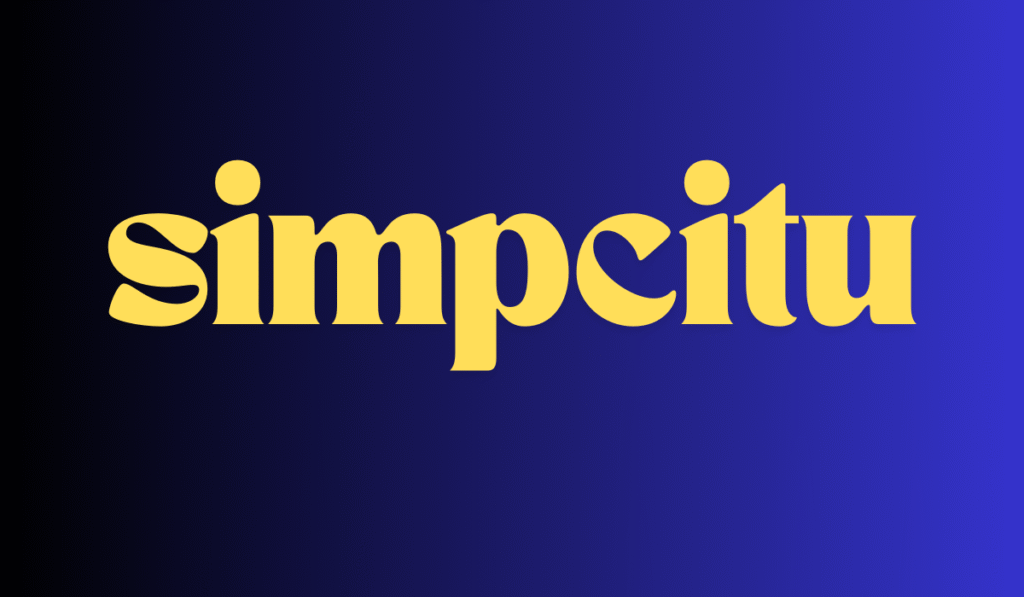What is Simpcitu?
Simpcitu is a term that has gained traction in contemporary discourse, particularly within various social and cultural contexts. While its precise definition may vary, at its core, simpcitu denotes a state of simplicity or minimalism, often associated with a rejection of complexity in favor of clarity and directness. This concept can be traced back to philosophical traditions that advocate for straightforwardness in thought and communication, reflecting the belief that simplicity fosters understanding and accessibility.
Historically, the notion of pursuing simplicity has appeared in numerous philosophical tenets, ranging from ancient Stoicism to modern Zen principles. In each of these frameworks, simpcitu embodies a harmony with one’s environment, emphasizing the importance of discernment and the elimination of unnecessary distractions. Today, this notion continues to resonate, particularly as society grapples with the overwhelming influx of information in the digital age, leading to a growing appreciation for clarity in personal and collective interactions.
Misconceptions surrounding simpcitu often arise, with some assuming that it equates to a lack of depth or seriousness. However, it is essential to understand that embracing simpcitu does not imply a rejection of complexity but rather an effort to convey intricate ideas in a more digestible manner. Advocates argue that simpcitu allows for more effective communication and fosters environments where individuals can engage with ideas without feeling overwhelmed.
In today’s increasingly complicated world, the relevance of simpcitu cannot be overstated. The emphasis on straightforwardness has implications across various fields, including education, design, and personal well-being. As we navigate through multifaceted discussions and challenges, incorporating the principles of simpcitu can ultimately lead to more productive outcomes and greater understanding among diverse audiences.
The Cultural Impact of Simpcitu
Simpcitu has emerged as a cultural phenomenon that reflects and influences social interactions and norms within various communities. The concept encapsulates attitudes and behaviors often associated with unrequited affection or excessive devotion, particularly in the context of romantic pursuits. By understanding simpcitu, one can gain insights into the underlying dynamics shaping relationships across different cultural landscapes.
In societies where simpcitu is prevalent, it often impacts the way individuals engage with one another. For instance, within certain youth subcultures, simpcitu may dictate social interactions, potentially leading to the glorification of self-sacrificial behavior in relationships. This notion can intersect with social media dynamics, where ideals surrounding love and devotion are often displayed and exaggerated. Consequently, the portrayal of simpcitu on platforms such as Twitter and Instagram contributes to a collective understanding that can both reinforce and challenge traditional relationship norms.
Moreover, simpcitu has seen a shift in interpretation over recent years, partly due to the rise of awareness regarding mental health and emotional well-being. A growing number of individuals and communities are critically assessing the implications of simpcitu, encouraging discussions that question its viability and implications on personal identity and self-worth. This re-evaluation signifies a broader trend that calls for healthier and more balanced relationship dynamics, moving away from one-sided emotional investments.
As diverse communities navigate their perceptions of simpcitu, one can observe a mosaic of cultural interpretations. While some may embrace the concept as a form of deep emotional expression, others critique its potential to foster unhealthy attachments. By examining these varied perspectives, it becomes apparent that simpcitu serves not only as a reflection of individual behaviors but also as a lens through which societal beliefs and values can be analyzed and understood.
Simpcitu in Modern Discourse

The term simpcitu has gained considerable traction in modern discourse, particularly within the realms of social media and popular culture. Its emergence reflects a broader societal conversation surrounding gender dynamics and interpersonal relationships. The terminology has evolved, with various interpretations and nuances being attributed to it. Individuals often engage in discussions regarding simpcitu across platforms like Twitter, Reddit, and Instagram, where the term is both praised and criticized.
From a linguistic standpoint, simpcitu can be viewed as part of a larger lexicon that explores the nuances of human connection and attraction. The rise of meme culture has further popularized this term, as users create content that either satirizes or endorses behaviors associated with simpcitu. This has resulted in a distinct dichotomy in how the term is perceived; on one hand, it can be used to highlight perceived submissiveness or overly agreeable behavior, while on the other hand, it may also be celebrated as a form of emotional vulnerability and openness.
Different groups have adopted varying stances on simpcitu. Some advocate for a recognition of the complexities that underlie relationships, arguing that empathy and compassion should not be dismissed as simpcitu. Conversely, others utilize the label to critique individuals who express affection or prioritization of their partners, viewing it as weakness rather than strength. This paints a multifaceted picture of interpersonal dynamics, where the implications of simpcitu can lead to discussions about masculinity, relationship expectations, and self-worth.
Overall, the articulation of simpcitu in contemporary dialogue illustrates its relevance in shaping opinions and behaviors regarding romantic engagements. Whether viewed positively or negatively, simpcitu continues to provoke thought and discussion, affecting how individuals navigate their relationships in a rapidly evolving social landscape. The ongoing debate surrounding the term exemplifies the complexities of modern relational discourse.
Future Perspectives on Simpcitu
As we look into the future of simpcitu, it becomes evident that its relevance will only increase in an ever-evolving social landscape. The concept of simpcitu, which encapsulates the principles of simplicity, clarity, and understanding in communication and interaction, is prime for further application across diverse fields. With technological advancements accelerating the pace at which we communicate, the necessity for simpcitu becomes increasingly critical to navigate the complexities of modern discourse.
One potential development is the growing integration of simpcitu into educational frameworks. As educators seek effective ways to teach critical thinking and enhance communication skills, simpcitu could serve as a foundational principle. By fostering environments where simplicity in expression is valued, students can learn to convey their thoughts more clearly, leading to more meaningful exchanges. This shift not only enhances individual understanding but also promotes collective growth within academic and social contexts.
Societal changes, including the increasing polarization seen in public discourse, highlight the urgent need for principles like simpcitu. Moving forward, we may witness a rise in initiatives aimed at promoting empathy and understanding, drawing on simpcitu to bridge gaps between differing viewpoints. This approach encourages constructive dialogue and reduces misunderstandings, ultimately forging stronger connections within communities.
Moreover, as digital platforms evolve, the manner in which simpcitu is applied will likely transform. The rise of artificial intelligence and automated communication tools presents both challenges and opportunities. Efforts to maintain a human touch in interactions, while utilizing these advanced technologies, can be guided by the ethos of simpcitu, ensuring that clarity and simplicity remain paramount.
In summary, the future of simpcitu is poised to play a vital role in various domains, promoting effective communication and fostering greater understanding. As we delve deeper into its principles, we are encouraged to consider how simpcitu will shape our interactions and contribute to a more cohesive society.
